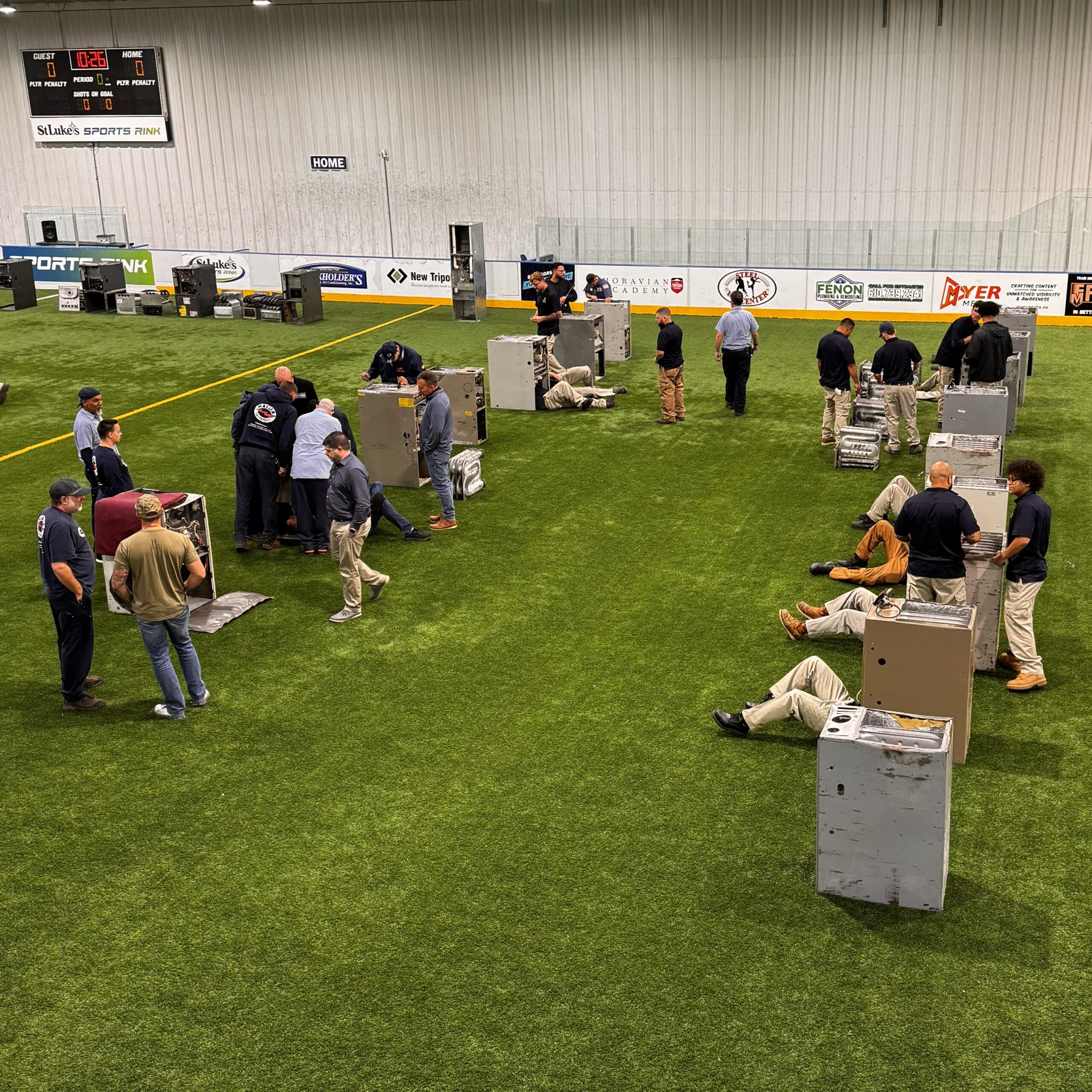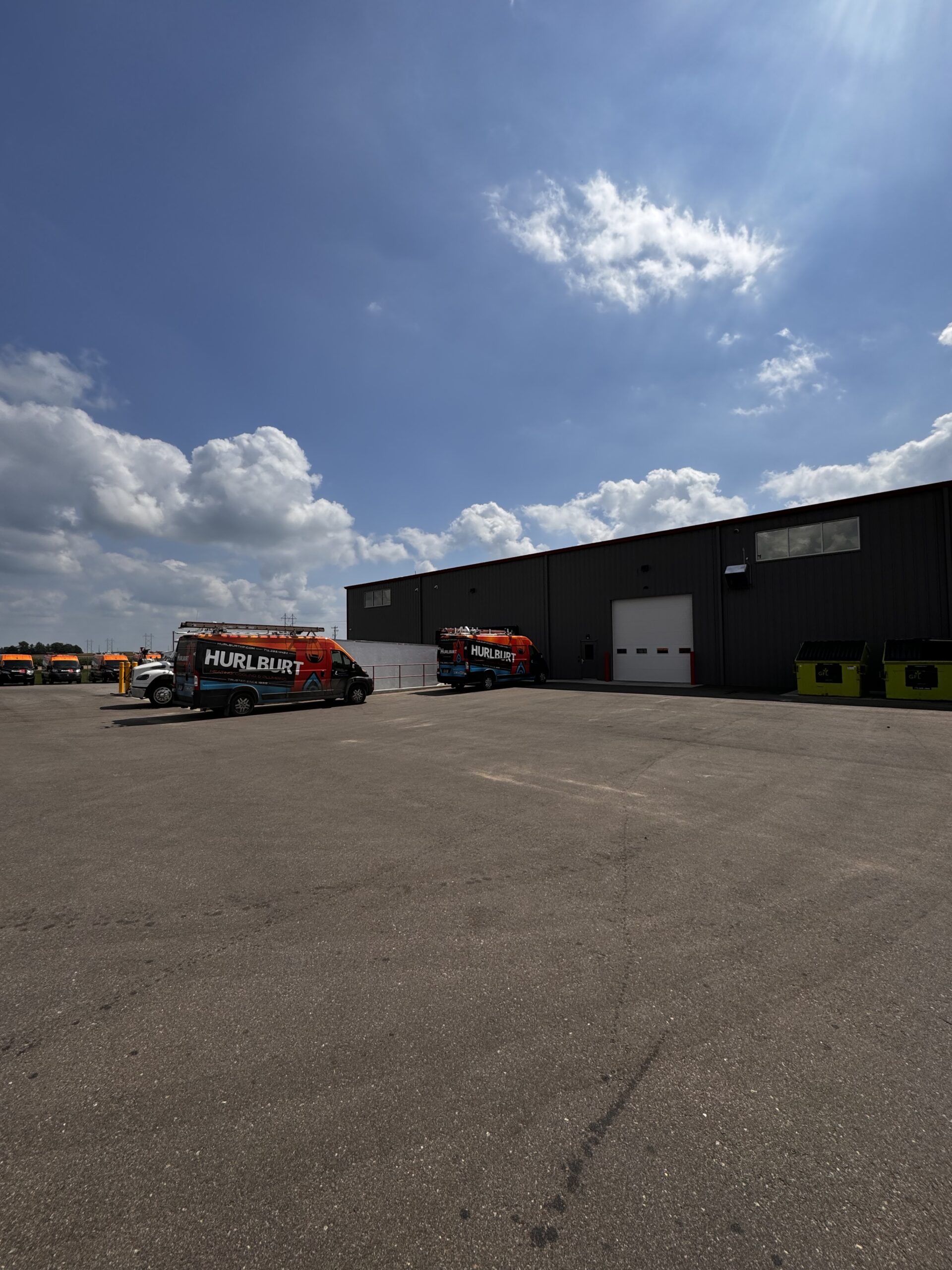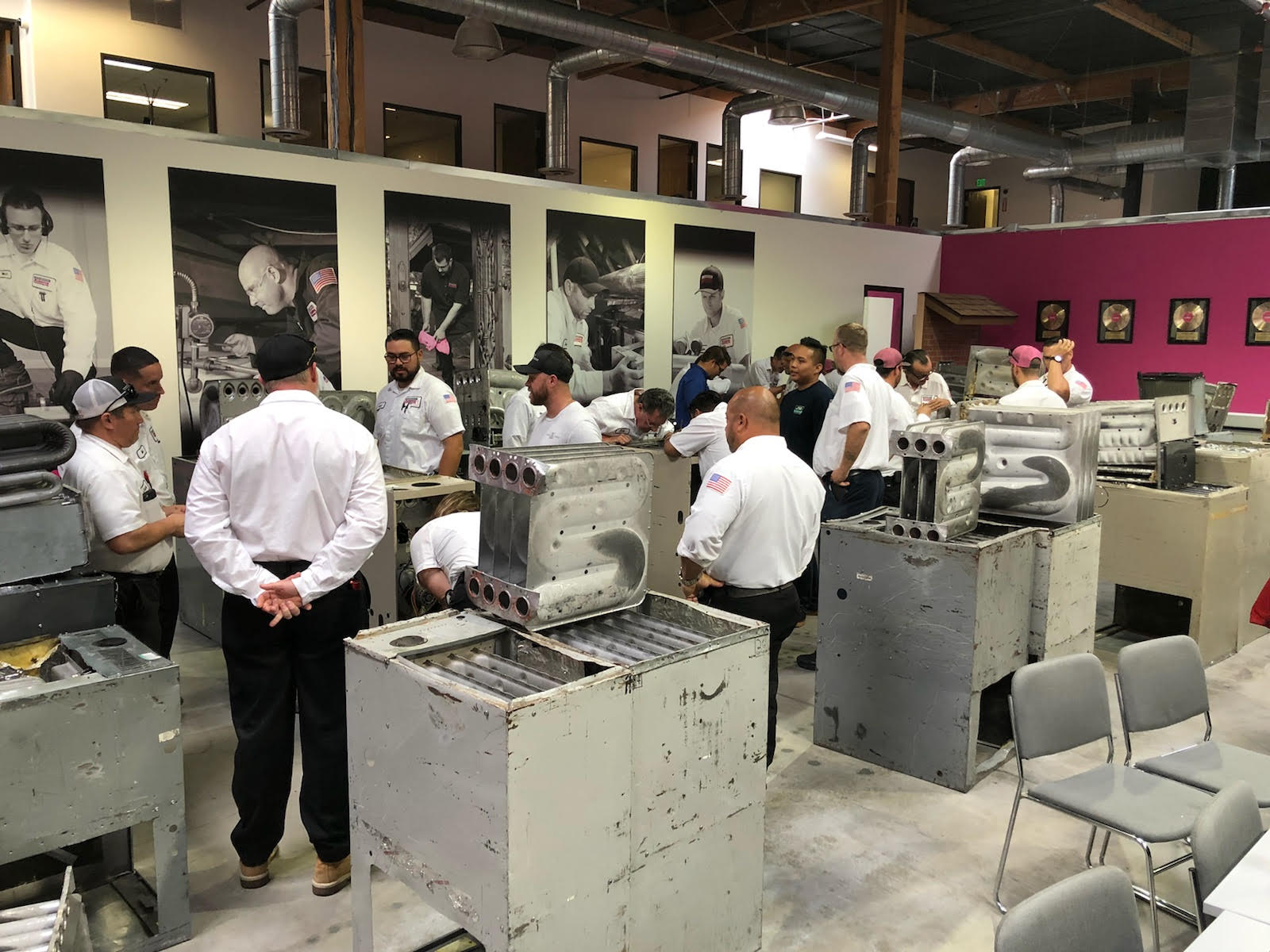If you’re preparing to begin your career as an HVAC technician, you’re entering one of the most rewarding and essential trades in the country. The HVAC industry combines hands-on problem-solving, technical expertise, and opportunities for long-term growth in residential and commercial environments.
Your first HVAC technician course is where that journey begins. These programs are designed to balance classroom instruction with hands-on training—teaching you the theory behind heating and cooling systems, as well as the skills you’ll need to work safely and effectively in the field.
Here’s what you can expect when you start your first HVAC training course—and how it lays the foundation for a successful, skilled, and profitable career.
Classroom Learning: Building the Foundation
Before stepping into the field, you’ll spend time learning the science and systems behind HVAC work. Classroom sessions focus on theory, safety, and the mechanics of air and heat movement through different systems.
1. Basic Electrical Systems
You’ll study how electricity powers HVAC systems, learning about circuits, wiring, schematic diagrams, and how to use test meters. Electrical safety is a major focus, as HVAC technicians regularly handle electric heating components and thermostats.
2. The Refrigeration and Heat Pump Cycle
Understanding the heat pump and refrigeration cycle is essential. You’ll explore how compressors, evaporators, condensers, and reversing valves transfer heat between indoor and outdoor environments. The physics of pressure, temperature, and heat transfer form the core of this section.
3. Heating and Cooling Systems
Students learn about furnaces, boilers, air conditioning, and ductless heat pumps, examining how each system contributes to central heating, cooling, and indoor air quality. You’ll also study airflow, energy efficiency, and how components like air handlers, heat exchangers, and ductwork work together for consistent comfort.
4. Safety and Industry Codes
Safety protocols are non-negotiable in HVAC training. Courses emphasize personal protective equipment (PPE), proper tool usage, electrical precautions, and the latest HVAC and building codes. Understanding safety standards is vital for protecting yourself, your team, and your customers.
5. System Design and Energy Efficiency
You’ll also explore the principles of system design—like duct layout, load calculations, and energy conservation strategies. Many modern programs introduce topics like Energy Star certification, carbon footprint reduction, and sustainability in HVAC design.
Hands-On Training: Applying Knowledge in Real Scenarios
After the classroom, it’s time to get hands-on experience. Most HVAC technician courses dedicate significant lab time to developing technical skills using professional-grade tools and equipment.
Tool Mastery
You’ll learn to handle industry-standard tools such as wrenches, pliers, gauges, and multimeters safely and efficiently. Understanding how to test voltage, measure refrigerant pressure, and assess airflow is critical for diagnosing and repairing systems in the field.
System Assembly and Installation
Students work directly with HVAC components—assembling ductwork, connecting valves, mounting compressors, and fabricating sheet metal. You’ll gain experience installing systems like split heat pumps, furnaces, and air conditioning units, following manufacturer specifications and safety codes.
Troubleshooting and Repairs
Real-world troubleshooting scenarios help you identify and fix issues like airflow restrictions, refrigerant leaks, thermostat malfunctions, and blocked ducts. This hands-on approach builds confidence and prepares you for actual service calls.
Preventative Maintenance and Efficiency Testing
Courses teach you how to maintain HVAC systems for long-term performance—checking filters, pressure, condensate drains, and heat exchangers to ensure efficient operation. You’ll also study energy efficiency ratings like SEER (Seasonal Energy Efficiency Ratio) and Coefficient of Performance (COP) to measure system performance.
Skills You’ll Develop
By the end of your first HVAC technician course, you’ll have developed a well-rounded skill set that prepares you for success:
- Technical Proficiency: Understanding electric, mechanical, and airflow systems.
- Problem-Solving Abilities: Diagnosing heating system and cooling issues quickly and effectively.
- Safety and Professionalism: Following OSHA standards and representing your company with integrity.
- Energy Awareness: Promoting efficient energy use and reducing carbon emissions through proper system maintenance and design.
- Career Readiness: Graduates are often ready for entry-level HVAC positions, apprenticeships, or advanced specialty training such as heat exchanger inspection or geothermal heating and cooling technologies.
Why Advanced Training Matters
Foundational courses prepare you to work safely, but advanced training helps you specialize and stand out. Programs like those offered by Heat Exchanger Experts focus on in-depth inspection, diagnostics, and safety training for residential heat exchangers—one of the most critical components of any heating system.
Our classes go beyond the basics, providing hands-on instruction with real heat exchangers, detailed inspection manuals, and guidance from trainers who have spent decades in the HVAC industry. Whether you’re just starting your career or looking to refine your expertise, this training equips you with the technical skills and confidence to perform at the highest level.
Ready to take your HVAC career to the next level?
Join an open training session with Heat Exchanger Experts, the nation’s leader in HVAC inspection and safety education. Learn from professionals with more than 55 years of experience and gain hands-on practice with real equipment to prepare for real success.
Visit Heat Exchanger Experts to register for upcoming classes or learn more about our national training seminars.
FAQs About HVAC Technician Training
1. How long does it take to complete an HVAC technician course?
Introductory HVAC courses typically last several months, while certification and advanced programs can extend up to a year depending on the curriculum and hands-on requirements.
2. Do I need prior experience before enrolling in HVAC training?
No prior experience is necessary. Introductory courses are designed for beginners, teaching everything from basic electrical theory to system assembly and safety practices.
3. What tools will I need as an HVAC student?
Students commonly use wrenches, screwdrivers, pliers, gauges, and multimeters. Advanced programs may also introduce diagnostic tools for refrigerant and pressure testing.
4. What job opportunities are available after HVAC training?
Graduates can pursue positions as entry-level technicians, HVAC installers, or apprentices. With continued education, you can specialize in areas like heat pump systems, ductless mini splits, or heat exchanger inspections.
5. Why choose Heat Exchanger Experts for advanced training?
Heat Exchanger Experts is led by seasoned professionals with decades of real-world experience. Their hands-on courses and detailed manuals ensure technicians gain practical skills that enhance safety, accuracy, and professionalism in every inspection.





